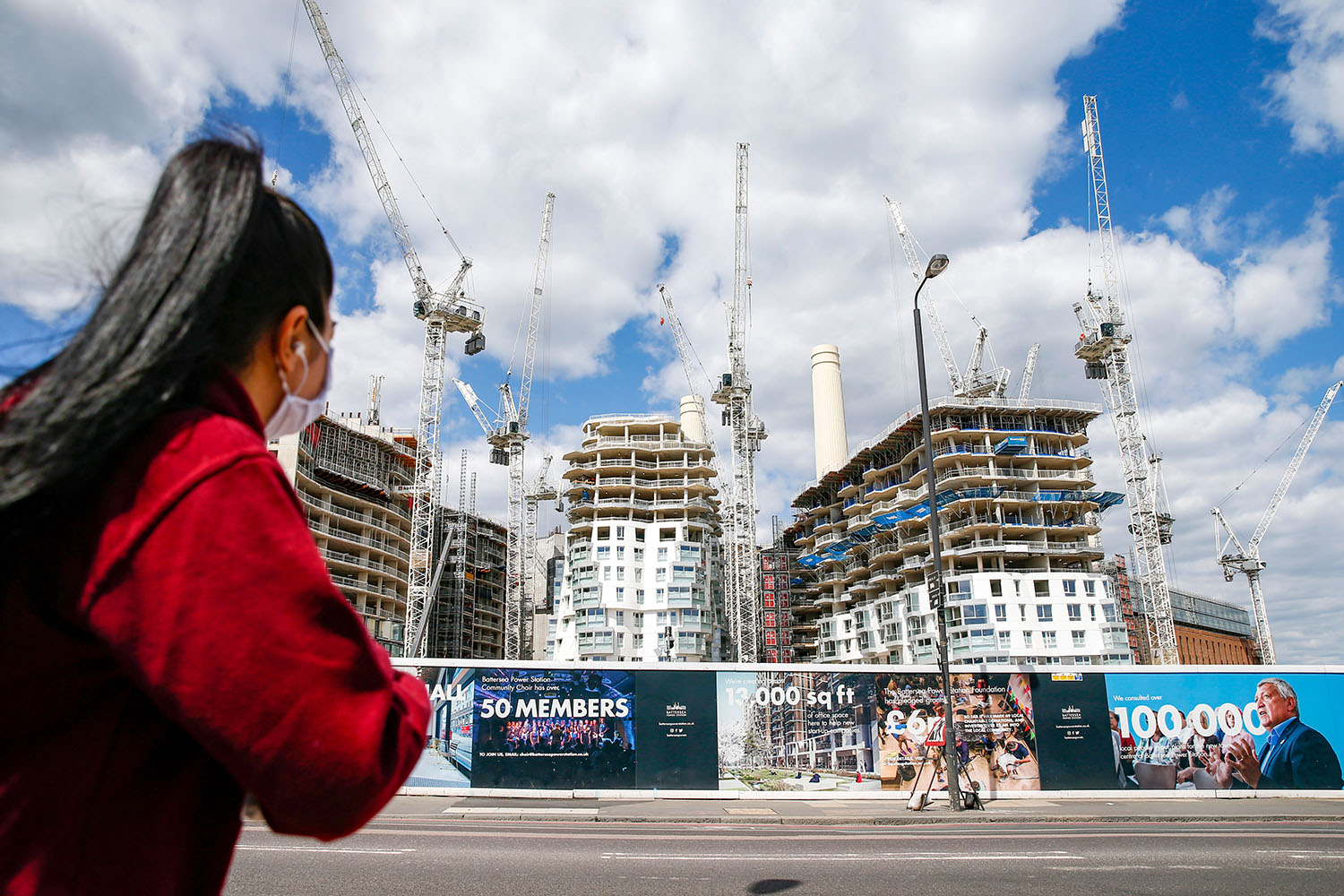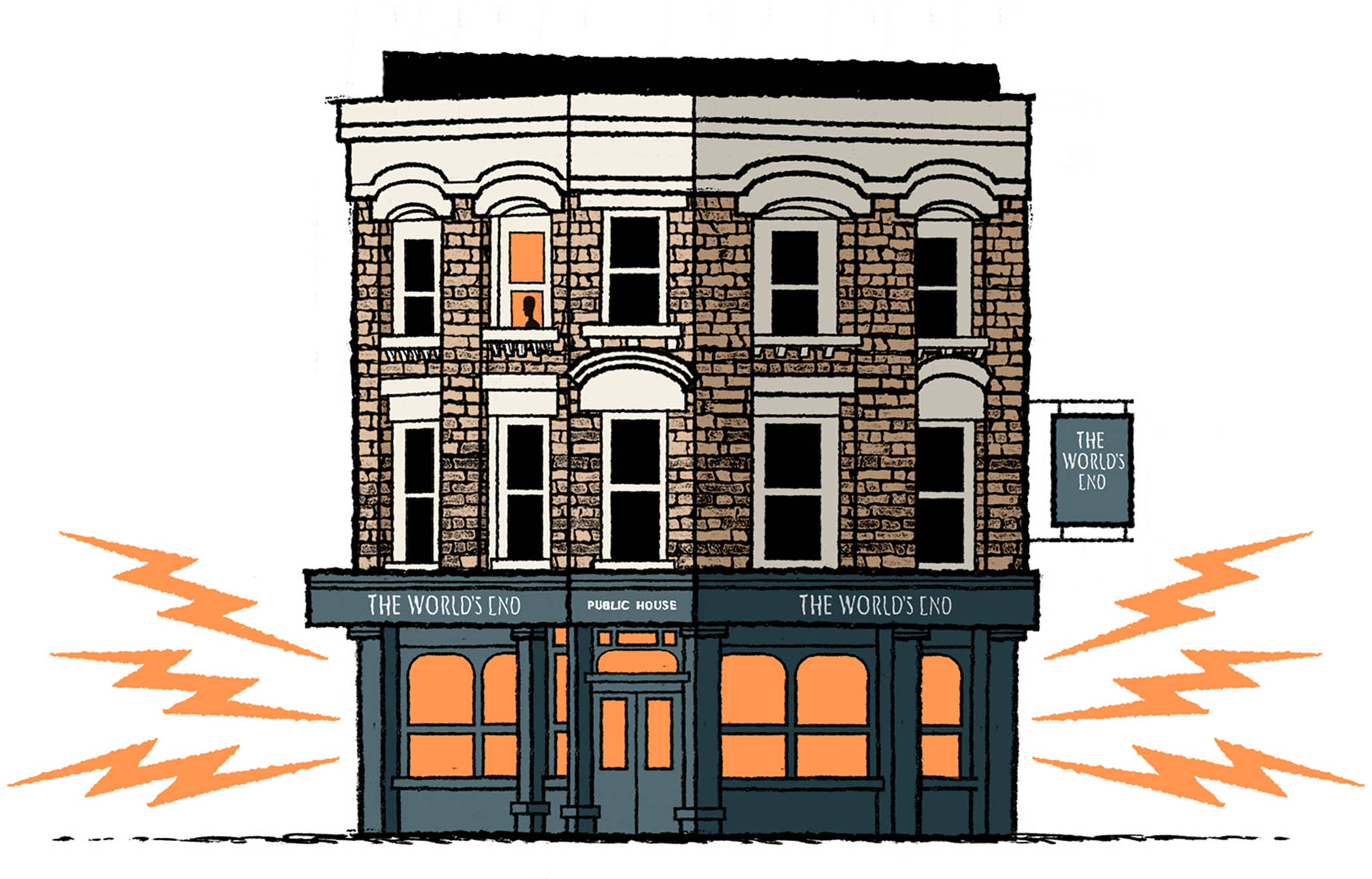A renter buying an average first home in London needs more than £65,000 in savings and a salary of £120,000. The average renter has about £9,000 in savings and earns less than £30,000, according to a Public First report.
The numbers are absurd to type. Of course, the only rescue package is the bank of mum and dad; without that, less than one in 20 young Londoners can buy a first home. And when I say young, I mean under 45.
This is a catastrophe. We rightly bemoan the inability of Britain to build anything – hospitals, train lines, nuclear power stations – but it is with housing that you see the clearest accretion of misery. Housing is now more unaffordable than at any time since the 1870s.
The situation is also becoming much worse. The number of new homes started in London has dropped 75% in the past year. Just over 1,000 were begun in the first quarter of the year – one-twentieth of the government’s target, which was already much lower than needed to keep up with rising housing demand. A fifth of the government’s parliamentary time is gone, housing takes years to build, and nothing is happening.
This is not inevitable. In the 1930s we built well over 50,000 homes in London a year.
London deserves special attention. It is where much of the housing demand lies and affordability is worst. It is where people are most open to new housing. By building in London you could avoid the expansion of villages and small towns that cause such rage.
Why has housing collapsed? Because we have created a system built on veto power and split the benefits of new homes from the costs.
Councillors frequently delay or block new housing developments, and often have voters who strongly wish them to do so. There are few compensations to the council for saying yes. Payments by the developer to the council are rarely enough for the council to afford new schemes, while stamp duty goes entirely to the Treasury. Dense housing creates agglomeration and growth, and central government reaps the gains of those. Most of the taxes local businesses pay go to the Treasury. So there is a muted reward for saying yes.
Regulators, too, fail to balance risk and reward, and this has been the final nail in London’s coffin. In an entirely understandable reaction to the Grenfell Tower fire, a centralised building safety regulator emerged with national veto power over every new high-rise residential project. It has been swamped by applications and turned most of them down, paralysing construction across the capital. Astonishingly enough, other cities do not follow this example. The regulator cannot look at growth, happiness or the ability to have a family and decide the development is worthwhile. This is a policy that guarantees irrational outcomes.
But this is fixable. Governments with majorities can change laws. Dozens of new solutions are proposed every year to both the recent housing collapse in London and the chronic inability to produce homes. All require the release of land and the removal of some regulations. Most would work.
Newsletters
Choose the newsletters you want to receive
View more
For information about how The Observer protects your data, read our Privacy Policy
So why do we let this happen? Because policy problems are usually a function of politics. Of course, there are stupid decisions made and unintended consequences, but the major problems of policy stem from a refusal to make big political choices.
They seek votes everywhere and don’t do enough to show progress anywhere
They seek votes everywhere and don’t do enough to show progress anywhere
It is easy to see why, nationally, housing policy is politically hard. Local people care about stopping a particular development. Politicians use this in their campaigns. It is why the Liberal Democrats, in their successful quest to unseat Conservatives, became the most anti-housing party in the country.
But I find this unsatisfactory, because it is not politically hard to increase housing in some places. The Conservatives couldn’t build much in the home counties, but they could have built ferociously in London. No one was ever going to vote for them there.
A Labour government should have no problems concreting over the entirety of Cambridgeshire and most of the area around London. Aggressively building homes would be a big signal to the metropolitan graduate class, now Labour’s core vote, and would help them meet their growth targets. They have been somewhat more ambitious in planning reform than their predecessors, but not enough to make a serious difference.
Our political parties cannot seem to decide where to take electoral pain. We are living through a demographic and economic shake-up that has discombobulated political parties. They seek votes almost everywhere and don’t do enough to show progress anywhere. When one group creates a lot of noise – over a particular regulation, or any housing development, they are uncertain how much it matters. The result is paralysis and, of course, in the end their own political doom.
Solving the current housing crisis requires removing bad regulation and ending veto power. But this can happen only if politicians decide it matters enough and are willing to lose some votes. They just need to pick which ones – and understand that timidity means they will lose everyone.
Rachel Wolf is a founding partner at Public First
Photograph by Hollie Adams/Getty Images


